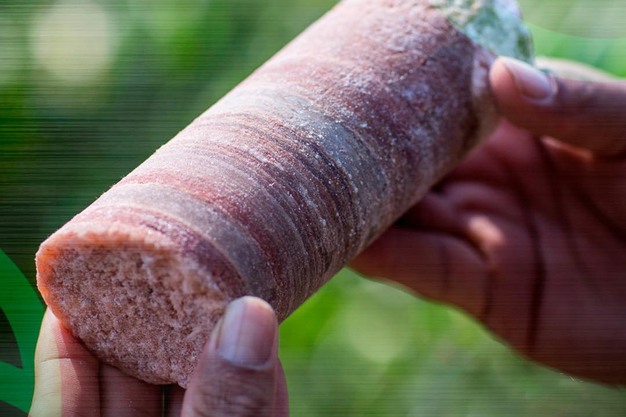As climate-adaptive farming methods like vertical and greenhouse cultivation scale globally, so does the urgency to secure reliable access to core crop inputs, particularly potassium. Controlled-environment agriculture (CEA) systems depend on consistent nutrient delivery to maintain yields and enable precision fertigation. For countries like Brazil, which imports approximately 98% of its potash supply, that dependence is increasingly viewed as a strategic vulnerability.
"Brazilian farmers are exposed as the country imports over 95% of its potash, when potentially the second-biggest potash basin in the world is sitting in its backyard," says Matt Simpson, CEO of Brazil Potash. "By producing this essential nutrient domestically, it mitigates geopolitical and transportation risks, helping ensure supply security." © Brazil Potash
© Brazil Potash
Input stability for precision growers
CEA operators, who rely on tight scheduling and nutrient dosing algorithms, are particularly susceptible to delays or quality inconsistencies in imported fertilizers.
"Given that approximately 50% of the world's potash supply sits in countries that are sanctioned or at war, the risks for Brazil are mainly unpredictability on the supply, high delivery times, surpassing 100 days, and exposure to price volatility," Simpson says. "Having a low-cost, in-country producer will greatly improve the status quo."
Brazil Potash's flagship Autazes Project is expected to meet around 20% of Brazil's national potash demand. "We plan to sell 100% of our production to the domestic market and will support all stakeholders that currently depend on unpredictable and time-consuming imported supply."
A climate-smart supply model © Brazil Potash
© Brazil Potash
Beyond boosting supply security, the company says the project will reduce roughly 1.4 million tons of CO2 emissions per year. "The Autazes Potash Project will reduce emissions mainly by displacing imported products that travel over 12,000 miles, and substituting current fossil fuel-generated power with Brazil's approximately 85% renewable power," Simpson explains.
"We're also integrating over 200,000 people into the Brazilian National Power Grid System through our powerline." That low-carbon profile could appeal to vertical farming operators with sustainability targets, particularly as traceability and emissions accounting gain traction in high-tech agriculture.
Right: Matt Simpson, CEO of Brazil Potash
Supporting high-tech nutrient strategies
As fertigation automation and nutrient personalization advance, potash's consistency becomes critical. "Potash is a cornerstone nutrient for emerging ag-tech practices, where precision and consistency are critical," Simpson says. "A secure, domestic supply reduces risks of import delays and quality variability, enabling producers to refine dosing algorithms and deliver reliable, tailored nutrient recipes."
Potassium plays a vital physiological role in CEA-grown crops. "It strengthens plant resilience against stress while enhancing taste, firmness, and overall quality. It improves crop yields and extends shelf life, making it essential for reliable leafy greens and fruiting crop production."
Toward regional supply and market integration
While the project's initial focus is Brazil's domestic market, Simpson says future expansions could eventually serve neighboring countries that are building out their indoor agriculture capabilities. The company has already signed two offtake agreements with tier-one buyers and transportation deals that utilize reverse logistics via the Northern Brazil river basins.
Government incentives are helping accelerate the project's rollout. "Incentives include streamlined access to financing from development banks like BNDES, potential tax incentives, and partnerships with public institutes to train the workforce and share sector best practices."
Although production is only expected to begin around 2030, after a four-to-five-year buildout, Simpson says there are three key milestones to watch out for: "The signing of a third and final offtake agreement; funding of major infrastructure like the power line, port, steam plant, trucking system, and backup power; and potential confirmation of exemption from import duties on construction equipment."
For more information: 
Brazil Potash
Matt Simpson, CEO
[email protected]
www.brazilpotash.com
